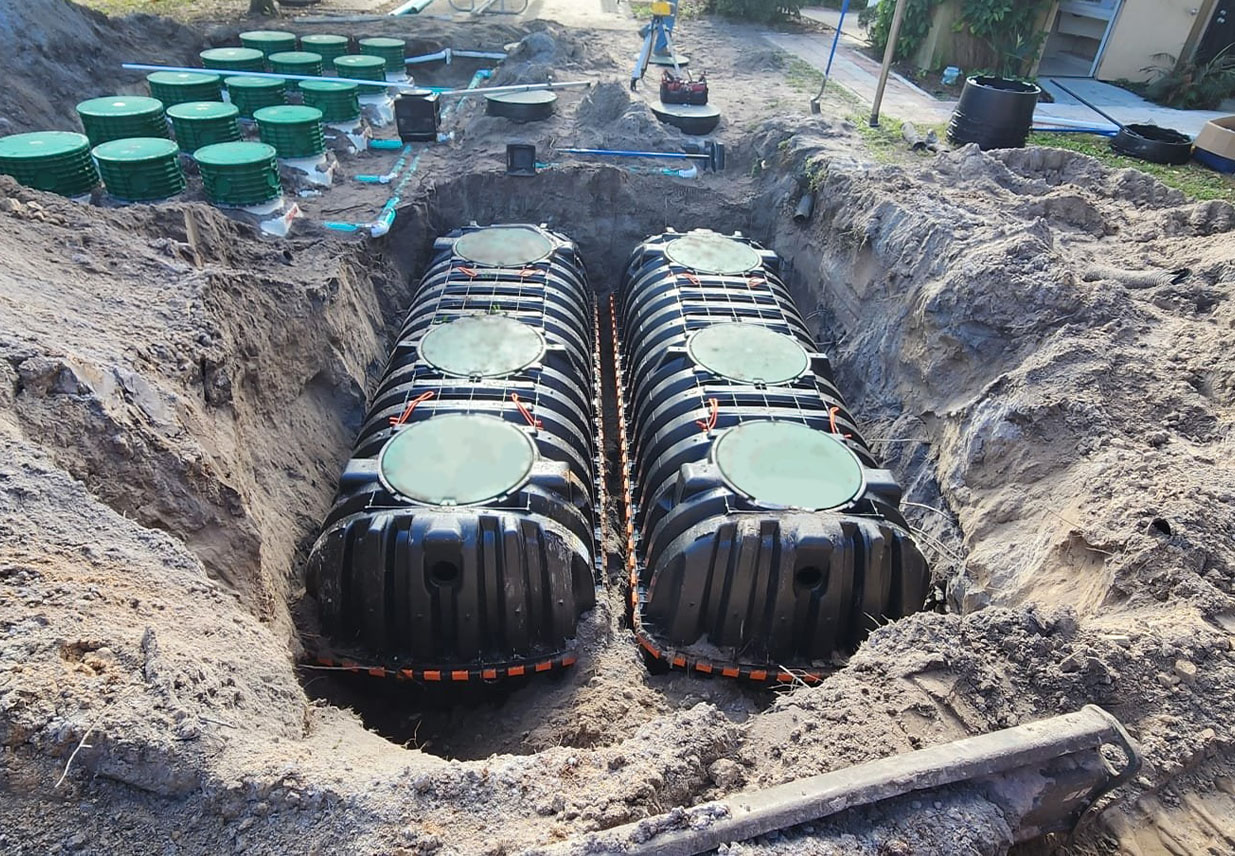DIY vs. Professional Septic Tank Pumping: What You Need to Know
Introduction
Septic systems are an essential part of residential waste management, especially in rural and suburban areas where municipal sewer systems are not available. Septic tank Pumping These underground tanks collect, treat, and dispose of wastewater from your home. However, like any other system, septic tanks require regular maintenance, particularly septic tank pumping. Homeowners often face a dilemma: should they tackle this task themselves or hire a professional? In this article, we'll delve into the intricacies of DIY vs. Professional Septic Tank Pumping: What You Need to Know, providing detailed insights to help you make an informed decision.
Understanding Septic Tanks and Their Functionality
What is a Septic Tank?
A septic tank is a watertight chamber made of concrete, fiberglass, or plastic that collects and treats wastewater from your household. It operates on the principle of gravity, separating solids from liquids and allowing bacteria to break down organic matter.
How Does a Septic System Work?
- Wastewater Infiltration: Wastewater flows into the septic tank from your home through pipes.
- Sedimentation: The wastewater separates into three layers — solids settle at the bottom (sludge), lighter materials float to the top (scum), while the liquid effluent remains in the middle.
- Natural Treatment: Bacteria digest solids in the tank.
- Effluent Discharge: The treated liquid is discharged into a drain field for further filtration.
Why Regular Septic Tank Pumping is Essential
The Importance of Maintenance
Regular maintenance ensures that your septic system functions efficiently and helps prevent costly repairs or replacements. Without proper upkeep, sludge builds up over time, leading to potential blockages.
Signs Your Septic Tank Needs Pumping
- Slow drains
- Foul odors near the tank
- Gurgling sounds in plumbing
- Lush patches of grass above the drain field
DIY vs. Professional Septic Tank Pumping: What You Need to Know
Pumping your septic tank can be performed either as a DIY task or by hiring professionals like ACE Septic & Waste. Each approach has its benefits and drawbacks that must be weighed carefully.
Benefits of DIY Septic Tank Pumping
- Cost Savings
- Performing it yourself can save you money on labor costs associated with hiring professionals.
- Control Over Scheduling
- You can choose when to pump based on your convenience rather than waiting for an appointment.
- Learning Experience
- Engaging in DIY work allows homeowners to learn more about their septic systems.
Drawbacks of DIY Septic Tank Pumping
- Lack of Expertise
- Without proper knowledge, you risk damaging your system or missing vital steps in the process.
- Safety Concerns
- Working with hazardous materials poses health risks if not handled correctly.
- Time Consumption
- The task can be time-consuming and labor-intensive.
Benefits of Professional Septic Tank Pumping
-
Expertise and Training
Professionals have extensive training and experience in handling various septic systems efficiently.
-
Proper Equipment
Companies like ACE Septic & Waste use specialized equipment designed for effective pumping without damaging your system.
-
Peace of Mind
Knowing your septic system is managed by experts allows you to focus on other priorities without worry.
Drawbacks of Professional Septic Tank Pumping
-
Higher Costs
Hiring professionals can be significantly more expensive than doing it yourself. -
Scheduling Conflicts
Depending on availability, you may have to wait for services during busy seasons. -
Less Control Over Process
You're reliant on someone else's schedule and methods rather than having full control over how it's done.
Comparative Analysis: Cost Implications
| Factor | DIY | Professional | |--------------------------|-------------------------------------------|-----------------------------------| | Initial Cost | Lower (equipment purchase) | Higher (service fees) | | Long-term Costs | Potentially higher due to mistakes | Predictable costs | | Time Investment | Significant time commitment | Ace Septic & Waste Less time required |
Tools Required for DIY Septic Tank Pumping
- Sludge Judge
- Sump Pump
- Garden Hose
- Rubber Gloves
- Safety Goggles
Note: If you're considering DIY work, ensure you're familiar with local regulations regarding septic tank pumping as they vary by location.
When Should You Consider Hiring Professionals?
While some homeowners may feel confident in their abilities to perform septic tank pumping themselves, certain situations warrant expert intervention:
1. Lack of Experience
If you're unfamiliar with how septic systems operate or have never pumped one before, it may be best to consult professionals who know the ins and outs of these systems.
2. Complex Systems
Modern septic systems can be intricate, including advanced treatment options like aerobic treatment units (ATUs) which require specialized knowledge for proper maintenance.
3. Emergency Situations
If you're facing an emergency situation such as backing up sewage or foul odors permeating your yard, immediate professional assistance is critical to avoid property damage or health risks.
Environmental Considerations in Septic System Maintenance
Proper maintenance isn’t just about keeping things running smoothly; it’s also vital for protecting our environment:
- Prevents Contamination: Properly functioning septics reduce risks associated with groundwater contamination.
- Protects Local Ecosystems: Regularly pumped systems limit overflow that could affect local wildlife habitats.
- Compliance with Regulations: Local laws often mandate regular inspections and maintenance for environmental protection.
By being diligent about maintenance—whether through DIY efforts or professional services—you’re contributing positively toward environmental preservation!
FAQs About Septic Tank Pumping
1. How often should I pump my septic tank?
Most experts recommend pumping every 3-5 years depending on usage patterns; however, households with excessive water use might need more frequent service!
2. Can I do my own septic tank pumping safely?
While it's possible if you're knowledgeable about the process—working with raw sewage carries inherent risks! Adequate safety gear and precautions are crucial!
3.Pumping seems costly; why can't I just let it fill?
Neglecting regular pumping leads not only to potential backups but also costly repairs! A small investment now saves significant problems down the line!
4.Can I visually inspect my tank before deciding whether it needs pumping?
Absolutely! Checking access ports allows you insight into sludge build-up—if it's within six inches from top level—it’s likely time for service!
5.What happens if I don’t pump my septic tank regularly?
Ignoring regular maintenance results in inefficient drainage leading eventually towards failure requiring significant repair efforts—a headache no homeowner wants!
6.Is there anything I should avoid flushing down toilets?
Yes! Avoid non-biodegradable items such as wipes or feminine hygiene products—they disrupt natural breakdown processes causing clogs!
Conclusion
Deciding between DIY versus professional septic tank pumping involves weighing several factors including cost savings against safety concerns and expertise levels needed for efficient execution! While some homeowners may relish tackling tasks independently others benefit greatly from hiring reputable companies like ACE Septic & Waste ensuring peace-of-mind knowing their systems receive proper care! Ultimately—the decision lies within personal preference—but remember that responsible choices lead toward better long-term outcomes both financially environmentally speaking! So weigh those pros & cons wisely—your future self will thank you!